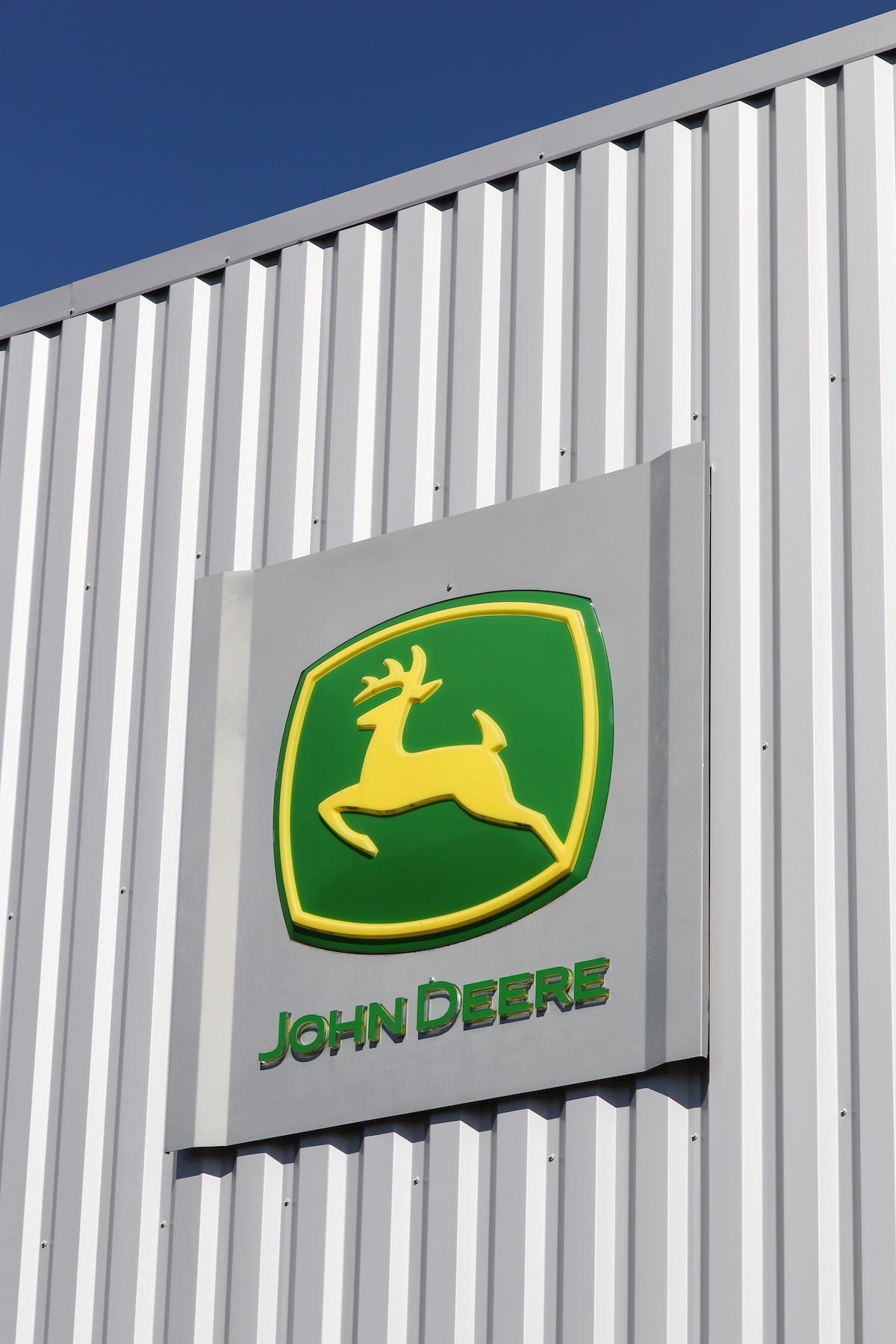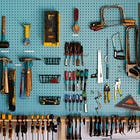Deere Comes "Clean" On Repairing Emissions Systems
The ag equipment giant admitted that farmers have the right to repair emissions systems on its equipment. Experts say Deere's words don't change the reality. Also: Spotify to issue Car Things refund.
In a recent letter to customers the agricultural equipment maker John Deere acknowledged an uncomfortable truth: federal clean air regulations give farmers -not the manufacturer- the right to decide who services and repairs emissions systems on their farm equipment.

A copy of the letter (PDF) shared with Fight to Repair, dated February 12, 2024 said that the company “recently discovered that the Operator's Manual for one or more of your products may be missing (a) statement, which clarifies aftermarket support requirements to maintain emissions compliance.”
The statement, included in the letter, under the heading “Required Emission-Related Information: Service Provider” reads:
A repair shop or person of the owner's choosing may maintain, replace, or repair emission control devices and systems with original or equivalent replacement parts. However, warranty, recall, and all other services paid for by John Deere must be performed at an authorized John Deere service center.
The news, which was first reported by Politico, marks a major pivot by Deere, which has long invoked federal clean air regulations as a justification for the many software-based restraints it imposes on farmers who want to service and repair their equipment.
In a 2022 SEC filing (PDF), for example, Deere warned that the passage of state- or federal right to repair laws “could require John Deere to provide access to the software code embedded in its products, which, among other harmful consequences, could …compromise engine emissions and performance controls.” Representatives from Deere and its many local dealerships who have testified in opposition to state agricultural right to repair laws have made similar arguments.
Mandamus to the rescue?
The updated statement, which will appear in online versions of operators manuals for Deere equipment, comes in the wake of a lawsuit filed against the EPA by Willie Cade, a repair advocate. (Check out our podcast with Willie from last year.)
The so-called “Writ of Mandamus” suit was filed to compel the EPA to enforce the letter of federal Clean Air Act regulations, arguing that the agency was allowing Deere and other manufacturers to skirt language in the Clean Air Act that requires “manufacturers to provide promptly to any person engaged in the repairing or servicing of motor vehicles or motor vehicle engines” to provide “any and all information needed to make use of the emission control diagnostics system... and such other information including instructions for making emission related diagnosis and repairs.”
The law also specifies that “no such information may be withheld under section 7542(c) of this title if that information is provided (directly or indirectly) by the manufacturer to franchised dealers or other persons engaged in the repair, diagnosing, or servicing of motor vehicles or motor vehicle engines.”
Finally, the Clean Air Act mandates that manufacturers print the language regarding repair on the first page, in bold face type, of a manufacturer’s manuals. However, the Writ of Mandamus listed 279 John Deere manuals that were non-compliant. “This noncompliance significantly contributes to the publics misunderstanding of the (Clean Air Act’s) requirements that any and all such information must be promptly provided,” it said.
In an interview, Cade said that he wasn’t sure whether Deere’s statement is a response to his lawsuit, but that he wouldn’t be surprised if the lawsuit and resulting media coverage prompted action by the EPA and the resulting statement by Deere.
Experts: (Repair) talk is cheap
Regardless, Cade and other advocates for farmers’ right to repair their agricultural equipment said the practical reality is that Deere emissions systems are not able to be repaired without the involvement of a Deere authorized dealer or repair provider.
Kevin Kenney of Grassroots Energy LLC, and a Nebraska based agricultural repair advocate, said the new Deere language was “like a fart in hurricane.” Farmers and independent repair shops“don’t have any tools that are meaningful” to do repairs on Deere equipment. The key to servicing Deere emissions systems and equipment boils down to access to software, including credentials and access to Deere’s Dealer Level Service Advisor (DLSA), rather than the Customer Level Service Advisor that Deere makes available to customers.
John Deere did not respond to an email request for comment.
Yet to be understood is the impact of Colorado’s 2023 law that gives owners of agricultural equipment a legal right to access any information, software and parts provided to authorized repair providers. In theory that law would give farmers in Colorado the access to software, including Dealer Level Service Advisor. However, as yet, Colorado’s Attorney General has not taken specific actions to enforce the law.
Other News
Google Can Keep Pixel Phones Repaired With Cheaper Replacement Parts
Companies from Apple to Google and Samsung have been celebrated recently as they have rolled out “self-repair” programs. What were originally seen as steps in the right direction on both saving people money and sending fewer phones to the dump are now being seen differently. Not only did Samsung catch heat for losing its partnership with iFixit (a company that walked away from a partnership to help run their self-repair program) but now there is news that Google has a clause in its repair terms and conditions that when someone sends their phone in for repairs, the company retains the right to not return Pixel phones that have been repaired with non-Google parts.
Spotify Issuing Refunds for “Car Thing”
Spotify now plans to issue refunds for it’s “Car Thing” after a wave of frustration came following the news it would be bricking the devices. Customers with a valid receipt “(like an emailed invoice) can contact customer service and get their money back for the vehicle streaming device.” There is some speculation around whether the company anticipated lawsuits over customers wanting refunds, but while the refunds are a good start, they do nothing to address the needless waste associated with the trashing of these electronics.
Massachusetts Auto Repair Law Still Stuck
The "right to repair" automotive law that Massachusetts voters passed in 2020 is currently on hold due to legal challenges from automobile manufacturers, The Boston Globe reports. The law, aimed at allowing independent shops access to the same vehicle data as manufacturers, faces opposition from car makers over concerns regarding data security and car safety. These manufacturers argue that the unrestricted sharing of wireless data could lead to security vulnerabilities. The case has not moved forward as quickly as supporters hoped, and the courts have yet to make a decisive ruling, leaving the implementation of the law in limbo
Community Tool Library Shares Everything—Chainsaws Included
What would happen if we share more things that we rarely use? Instead of every individual household having a tool shed where they use large (and expensive) tools infrequently, some communities are turning toward sharing their tools—and they’re reaping many benefits. Not only does this system save people money, but it also reduces waste created by communities by pooling resources. On top of all of this, like a traditional library, people are building more resilient and connected communities where people talk with one another, help one another, and share skills with one another.
New Zealand Considers Minimum Product Lifespans
There should be minimum lifespans that consumers should be guaranteed when buying products says Win Thander Zaw at The New Zealand Herald. As a country that has been seen as a leader in sustainability, environmental advocates are thinking about what it would mean to truly make tools, electronics, and appliances last longer. This push for longer lasting devices is important especially given “e-waste is the fastest-growing waste stream” in New Zealand. We’ve already seen countries in Europe (and the EU at large) taking measures to require spare parts, information, and software supports longer—but will the trend be global?
Interior designer calls out home appliance ‘planned obsolescence’
In a video, interior designer Julie Jones of Julie Jones Designs (@juliejonesdesigns) raises concerns about planned obsolescence in household appliances, highlighting their reduced lifespans compared to older models. Her viral TikTok video discusses how appliances today last only 7-10 years, promoting a throwaway culture driven by profit. Jones calls out the "Right to Repair" movement, which seeks to make replacement parts available for longer. She emphasizes recycling old appliances and spreading awareness about the issue to build a more sustainable future.
Do we need a right to repair AI? (This CEO says “yes!”)
For AI to achieve its full potential, non-experts need to be let into the development process, according to Rumman Chowdhury, CEO and cofounder of Humane Intelligence. In a video, Chowdhury cites examples of farmers fighting for the right to repair their software (and AI?) powered tractors and other precision agricultural gear. She says everyone should have the ability to report issues, patch updates or even retrain AI technologies for their specific uses.
Podcast: right to repair gaining steam in state legislatures
In a recent Science Friday podcast, guest host Arielle Duhaime-Ross chatted with Jason Koebler, co-host of the 404 Media podcast, about the growing adoption of right to repair legislation by states, why companies have been lobbying against it, and what he thinks the future of the right to repair movement is.







